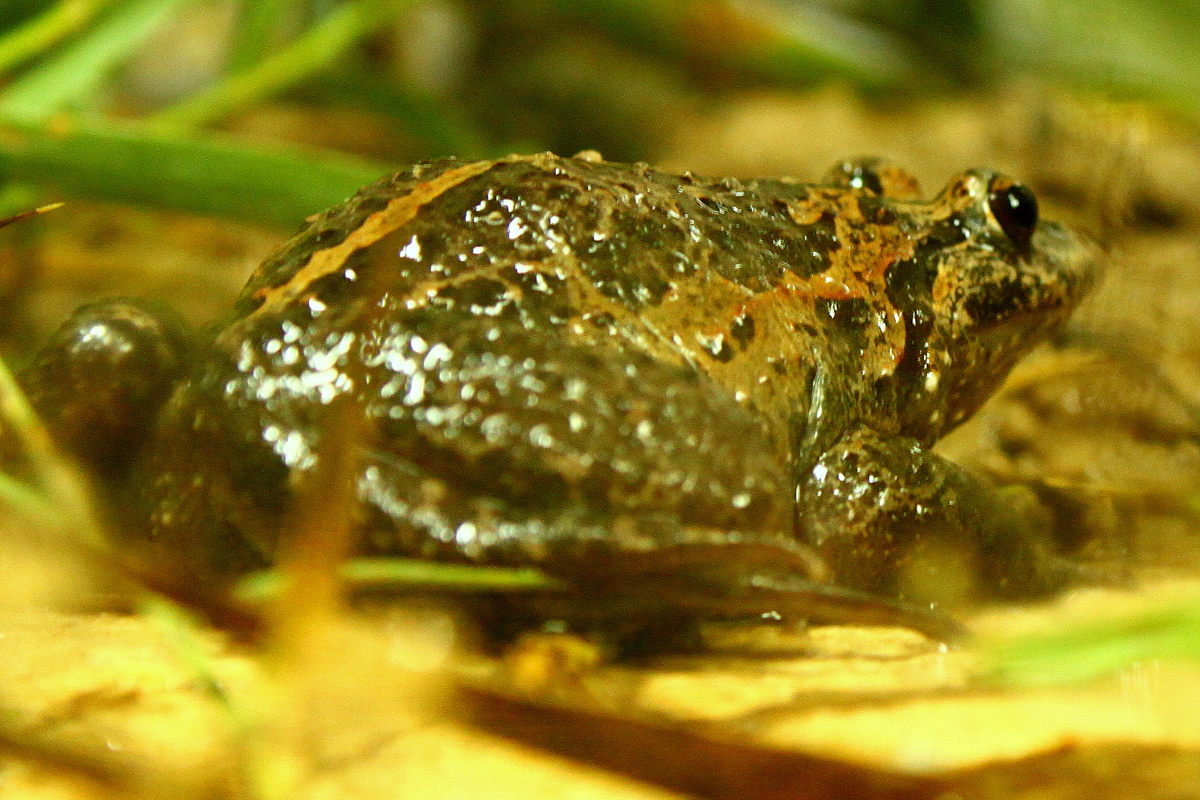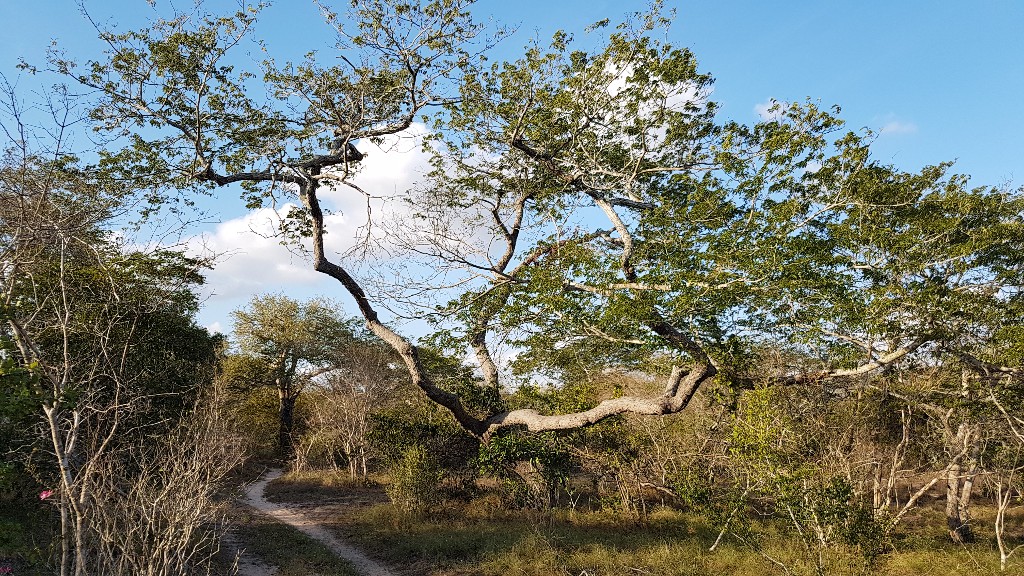Smelling a Stradivarius (or how to value 100 endangered species)
There was an important and widely-noticed statement at the World Conservation Congress in Jeju last week:
“The donor community and conservation movement are leaning increasingly towards a ‘what can nature do for us’ approach, where species and wild habitats are valued and prioritised according to the services they provide for people. This has made it increasingly difficult for conservationists to protect the most threatened species on the planet. We have an important moral and ethical decision to make: Do these species have a right to survive or do we have a right to drive them to extinction?”
Professor Jonathan Baillie, Conservation Director of ZSL, was launching a new list of the 100 most threatened species on the planet and warned that little effort is being made to protect over half of them. His comments herald bad news – that so little effort is being made at such a time of crisis. But it is also good news that senior figures in the conservation movement are giving serious attention to how the conservation argument is made. When over 20% of species in many taxa are heading for extinction in the next few decades, this is timely indeed. It has been the cause of widespread dismay to Christians and others alike that in recent years many conservation groups seem to have made their reluctant peace with the ruling and reductionist approach of establishing “ecosystem services”. Demonstrating how nature benefits human self-interest, or even more crudely, financial self-interest, has been widely seen as our only hope of getting the attention of the political and business powers.
Simon Stuart, Director of the IUCN’s Species Survival Commission, and others, have helpfully pointed out that all species are valuable to life on earth, and therefore to us. So there is no doubt that such arguments can play a supporting role. But there have been many and varied critiques of the more extreme attempts to reduce the value of nature to the degree that it is important for human life. To say nature matters because it matters to people is a bit like smelling a Stradivarius. It is possible, but many would say it is missing the point. The difficulties of the “services” argument range from the problems of providing metrics for complex ecosystems that make any economic or social sense, to the familiar issues that have afflicted utilitarian ethics as applied to many other areas of human experience since their most influential outings in the writings of Bentham and Mill in the eighteenth century.
Baillie pointed out that it is extremely hard to make any meaningful case for human benefit for the majority of the species on the most endangered 100 list. As A Rocha was directly involved in two attempts to re-find one of them, the Hula Painted Frog, in our Bekaa Valley study site, we can confidently assert that we would have been hard-pressed to defend all the effort and expense on the grounds that what we were really doing was looking for a cure for cancer or a way of re-starting the stuttering Lebanese economy.
Nevertheless, the prominence of the debate, typified by the attention it was given at this year’s BOU conference, is very encouraging. It has been wisely said that environmentalism is an ethic in search of a religion. More and more of those alarmed at the current threat to life on earth seem to agree that ethics, human choices about what matters and what is valuable, lie at the heart of the conservation challenge. If that convergence continues, the deeper question of how we can substantiate the ethics that we patently need will become an important one for us all. And then the discussion will really become interesting. For those who believe we live in a deterministic or accidental universe that will be a particular challenge. Jonathan Baillie himself simply said “I believe species are priceless”, which is as good a way as any of letting the genie out of the bottle.
We are happy for our blogs to be used by third parties on condition that the author is cited and A Rocha International, arocha.org, is credited as the original source. We would be grateful if you could let us know if you have used our material, by emailing [email protected].





I just finished an intensive course on Restoration Ecology at University of Melbourne. I’m not sure how reflective this university is of restoration work in Australia or around the world, but both the recommended textbooks and first essay assignment focused on restoring ecosystem “functions” and “processes”, and advocated for a more realistic shift away from “species” or biodiversity. The lecturers and recommended texts don’t mince their words: trying to restore species from a traditional perspective of reference benchmarks is too expensive, unrealistic and may be ecologically impossible. What is unsettling too is that novel ecosystems were suggested, possibly because much of the restoration work done in Australia is in mining where the financial backing makes it possible to “dig it up and make it pretty again”, albeit creating novel ecosystems by human design. I’m concerned that, if this kind of thinking is indeed dominant or becoming so elsewhere, we will be able to justify ecosystem services even more, because as long as it “functions”, it doesn’t really matter what species are present, especially when it becomes too hard to revive a dying species. And if we get so good at restoring function, then the game changes to one where conservation might become relegated to a practice much like museum-keeping.
Thanks Ken – it is very helpful to have these perspectives from a very distinct context. The real problem with what appear purely pragmatic solutions is that they actually rely on value judgements. Unless those value judgements are made explicit then it is much harder to have a worthwhile discussion about what the choices really are. So I am arguing that we must get straight the essential questions of what we value, and why we value it, before we plunge into arguments about species versus ecosystems, and what they can or can’t contribute to human well-being.
Ken,
I currently work under contract with a couple of NSW Government Departments with responsibility for natural resource management – and the current thinking is along the same lines as you have described.
Peter, what sort of value judgements would one expect to find from a highly materialized and individualized society? I tutor a small class right now of young adults in university, and some of their value judgements are so different from mine, a situation my teachers must have found too when i was in university, showing that the grounds or benchmarks have shifted so much, and will continue to shift. Nature isn’t mainly how biodiverse a place is, but has now become that which isn’t in the city and virtual space. What is valued as natural is becoming more man-defined and man-shaped than ever.
Greetings Peter,
Assuming you’ve by now seen this recent article in the Guardian, it carries on the same problem: http://www.guardian.co.uk/environment/2012/oct/16/biodiversity-loss-cost-un?CMP=twt_fd
It seems to me that the mere act of framing the value of other species in monetary terms necessarily weakens/ threatens any notion of their having non-monetary value. This article says, “conserving fish stocks would cost about $800m to $3bn a year from 2013-2020, but this would be far outweighed by the benefits – currently, according to the report, global fisheries could be worth $50bn a year more to fishermen and consumers if they were better managed…” To me this makes it all the more evident that we’re in danger of losing the distinction between the (monetary) cost and (non-monetary) value of these creatures and their livelihoods. Of course it is important to recognize the monetary implications of our abuse of Creation, but it’s hard to believe that making ourselves so rich in abusing it, we’ll suddenly find reason to justify make ourselves rich in saving it. I believe you are right, Peter, that all of this depends on prior value judgments, but I wonder whether, living in the economic times that we are, we haven’t lost our collective notion of ‘value’ apart from market terms.
Of course the more steadfast free-marketeers among us might retort that the only way for these species to be ‘on the board’ economically is to be given some economic value. An economy run by a bunch of homo sapiens seems helplessly determined to value everything relative to the value for homo sapiens.
I am convinced more than ever that Wendell Berry might’ve had this right a long time ago: That the problem here is a confusion of the ‘Big Economy’ – Creation – with the ‘little economies’ of our industrial order. In 1987 Berry wrote, the little economy, “does not see itself as a little economy; it sees itself as the only economy. It makes itself thus exclusive by the simple expedient of valuing only what it can use—that is, only what it can regard as raw material to be transformed mechanically into something else… The industrial economy is based on invasion and pillage of the Great Economy.” If we take his caricature of the modern economic as representative, it follows that all schemes to assign monetary value to the livelihoods of other species are, to borrow a phrase, in danger of gaining the whole world, but forfeiting their soul.
The report mentioned in The Guardian was authored by an economist. You’re probably aware of the adage: “For those with a good hammer, every problem looks like a nail” 🙂 – not much of a surprise that he would convert the issue into currency. Ask an engineer, a sociologist, or a pastor and they’ll give you answers appropriate to their fields of expertise. And they’ll probably all be right.
Furthermore, all actions other than grass-roots require money, and lots of it, so it’s natural that someone would state not just how much money is needed, but also to justify the ask by explaining how it’s so cost-effective compared to the alternatives. I’m not saying they’re wrong, but just that if we are not concerned with money, then we should know there are other ways of framing the issue.
I am myself beginning to think that part of the answer may be to read and meditate upon the likes of Wendell Berry.
[…] of these ideas find echoes in the Christian gospel, but neither is adequate on its own. Christians could point to the global, indeed cosmic, sweep of Paul’s language of “reconciling […]
[…] that nature has intrinsic value. Both find echoes in the Christian gospel, but neither is adequate on its own. Christians could point to the global, indeed cosmic, sweep of Paul’s language of ‘reconciling […]
[…] intrínseco. Ambas propuestas hallan ecos en el evangelio cristiano, pero ninguna es adecuada por sí misma. Los cristianos podrían señalar a la invocación global, ciertamente cósmica, del lenguaje de […]
[…] écho dans l’évangile, mais aucune n’est suffisante en elle-même. (voir article en anglais, Smelling a Stradivarius). Les chrétiens pourraient souligner la tournure planétaire et même universelle du langage de […]
[…] Ambas encontram ecos no Evangelho cristão, mas nenhuma das duas é adequada por si só (ver artigo em inglês no nosso blog: ‘How to smell a stradivarius’). Os cristãos poderiam apontar para o alcance global, na verdade cósmico, da linguagem de Paulo […]